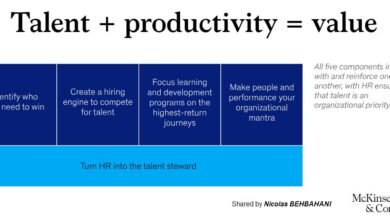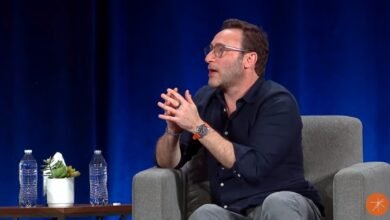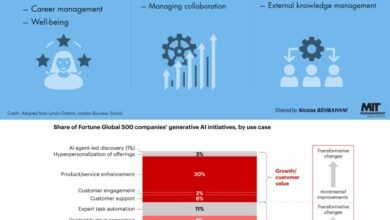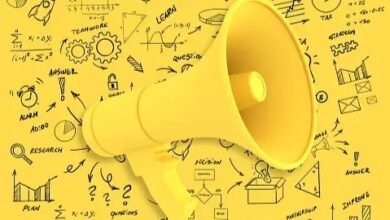
By | Dave Ulrich | Speaker, Author, Professor, Thought Partner on HR, Leadership, and Organization
If you are a business leader at any level trying to succeed in changing competitive markets, if you are an HR professional working to rise to the opportunity of increased expectations, or if you are an advisor redefining the future of work for clients, this post is intended for you.
Context
2020 and 2021 (and 2022) have been, are, and will likely be some of your most demanding personal and professional times …
- Physically (dealing with COVID challenges)
- Socially (facing personal isolation and injustice in the world),
- Economically (changing future of work expectations for industries and self)
- Professionally (rethinking why, where, and how work is done),
- Emotionally (addressing mental health and well-being)
- Technologically (accessing new digital services)
Yet out of these demanding times may emerge new insights about how people, organizations, (and you) operate. Under pressure, some rocks become dust and others diamonds. Discovering opportunity in crisis is not new. Plato said, “necessity is the mother of invention.” And Martin Luther King said, “Every crisis has both its dangers and its opportunities. Each can spell either salvation or doom.” For business leaders, HR professionals, and advisors to rise to the opportunity, they need to reinvent both content (new ideas about people and organization) and process (ways to turn ideas into impact). Let me offer our (www.rbl.net) content and process ideas that may help you.
Content: Overview of RBL Insights
Content defines the message — ways of envisioning, organizing, imagining, inventing, interpreting the future of work. Let me suggest five emerging content trends emerging from the context.
1. Human Capability.
There are many terms, concepts, and tools in the people, organization, and HR space. We have identified four elements of the human capability agenda to provide a simple but comprehensive blueprint for the agenda (Figure 1).
2. RBL Research
As summarized in Figure 2, we have been involved with two major research projects in the last 20 months: Organization Guidance System (OGS) and the HR Competence and Capability Study (HRC2S).
3. RBL Additional Inquiry and Exploration
In addition, we found new “listening posts” to uncover challenges, including interviews with senior HR and business leaders, LinkedIn posts to share observations, and LinkedIn comments to explore ideas. We have offered over 300 webinars on emerging topics, including:
5. Meta Themes
Out of this work, we have articulated three simple meta-themes or agendas for human capability to rise to the opportunities, relevant to all interested in human capability.
- HR is not about HR, but delivering value to all stakeholders inside (employees, business strategy) and outside (customer, investor, community).
- HR contributes human capability (talent, leadership, and organization) to all stakeholders.
- HR reinvention occurs through the HR department, HR people, and business conversations.
6. RBL Overall Logic and Key Insights
At RBL, we have consistently applied a four-step logic to highlight how HR responds to these three meta themes (see Figure 3), starting with the environment (context, outside/in), moving to strategy (competitiveness), to human capability (talent, leadership, organization, HR) to guidance (impact).
Based on the research and other work, we have identified a number of specific insights in each of the areas of the overall framework (see Figure 4). This is a dazzling list of opportunities and challenges. The content of what lies ahead is daunting but exciting.
Process: Overview of RBL Insights
Content defines the message; process turns the message into individual and organizational actions. In Figure 5 we lay out two dimensions of upgrading HR (where/how learning occurs vs. who experiences learning). Many offer excellent HR development in the four quadrants. Let me review the RBL agenda in these four quadrants plus the integrative agenda that pulls the four together (#1) in Figure 5.
1: RBL Institute.
The RBL Institute is a membership organization of companies committed to thought leadership and action in HR that delivers value. Member companies send participants to think tanks to shape new ideas (recent/upcoming think tanks on agility, hybrid work, mental health/well being, public human capability reporting, post-COVID leadership trends, and the new workforce), participate in the latest research, access personal advisory services, and share best practices. The RBL Institute is the incubator of innovative ideas with impact.
2: HR individual in-person learning.
We partner with the University of Michigan in their Advanced HR Executive Program (AHREP) where global participants learn the playbook for the future of HR based on the 35 year HR competency research. The faculty in this 2-week program include thought leaders in strategy (Ram Charan), global HR (Arthur Yeung), CHRO agenda and DEI (Myrian Graddick-Weir), HR profession (Johnny Taylor), strategic HR (Wayne Brockbank), HR analytics (Dick Beatty), HR compensation (Charlie Tharp) and HR value creation (Dave Ulrich).
3: HR in-person virtual learning
Partnering with CorpU, we have created virtual learning academies on talent (12 modules), HR (16 modules), leadership (12 modules), and market-oriented ecosystems (8 modules). These virtual academies include blended learning with digital, personal modules and facilitated discussion groups. Participants can access and personalize the HR playbook for success. Participants can also access personal assessment and improvement modules
4: HR virtual team learning experience (HRVLE)
We have invited companies to identify an HR priority that will drive stakeholder results and to organize a team of high potential HR professionals to not only address that agenda but access through a digital library the latest thinking on HR. Each HRVLE team is virtually coached by world-class coaches (e.g., Dick Beatty, Norm Smallwood) to make progress on the HR agenda, and each team member access HR content modules relevant to their personal learning and team project. Each team member may also access personal coaching from Dave Ulrich.
5: HR Learning Partnership (HRLP)
The RBL Capstone program (HRLP) has been offered for 20 years with over 1,500 participants. Participants attend as a team of high potential future HR leaders in an 8-day consortium with 6 to 8 teams from other companies. Participants learn the playbook for HR value creation, work on a company project to apply the playbook, and receive personal coaching for professional and personal growth. Teams also share with each other and have an immersive learning experience that helps implement a company’s HR agenda and inspires personal improvement.
We know we (www.rbl.net) are not the only providers committed to helping business leaders, HR professionals, and advisors respond to the contextual challenges, But, we have strong content … a point of view based on theory, research, and practice about why and how human capability (Figure 1) can deliver value to all stakeholders through upgrading HR professionals. We also have created remarkable processes to enable HR professionals to rise to the opportunities.
We hope we can partner with you in 2022 to inform business leaders, upgrade HR professionals, and shape the human capability agenda. Please contact rblmail@rbl.net for more information or click here.
Republished with permission and originally published at Dave Ulrich’s LinkedIn












